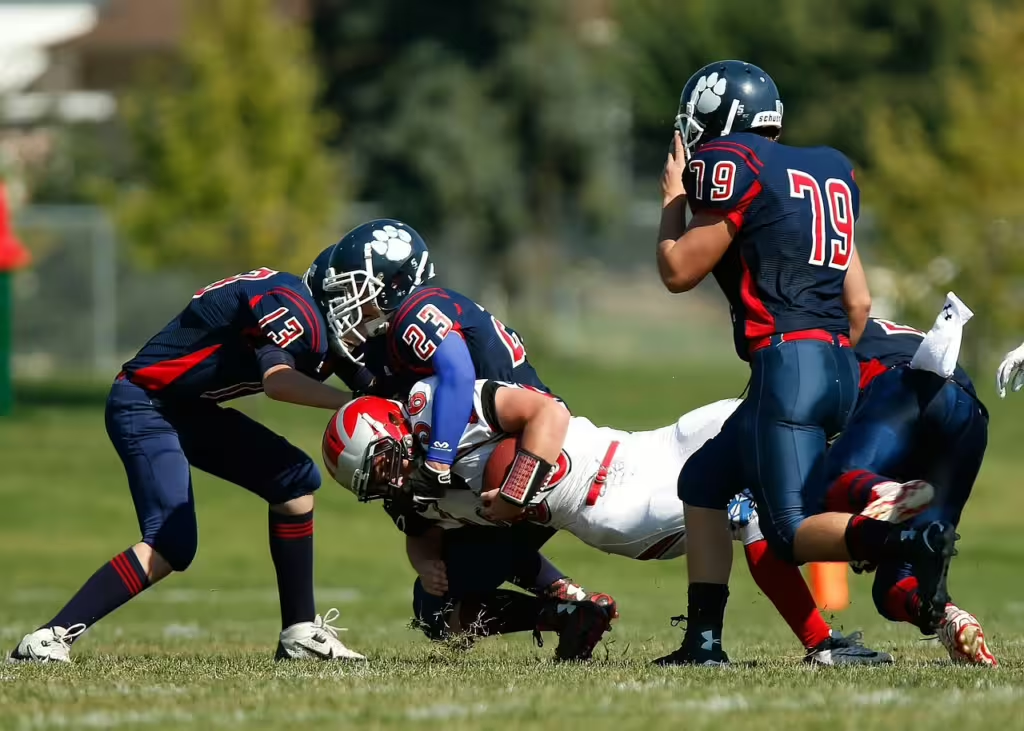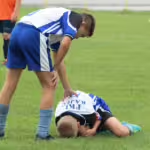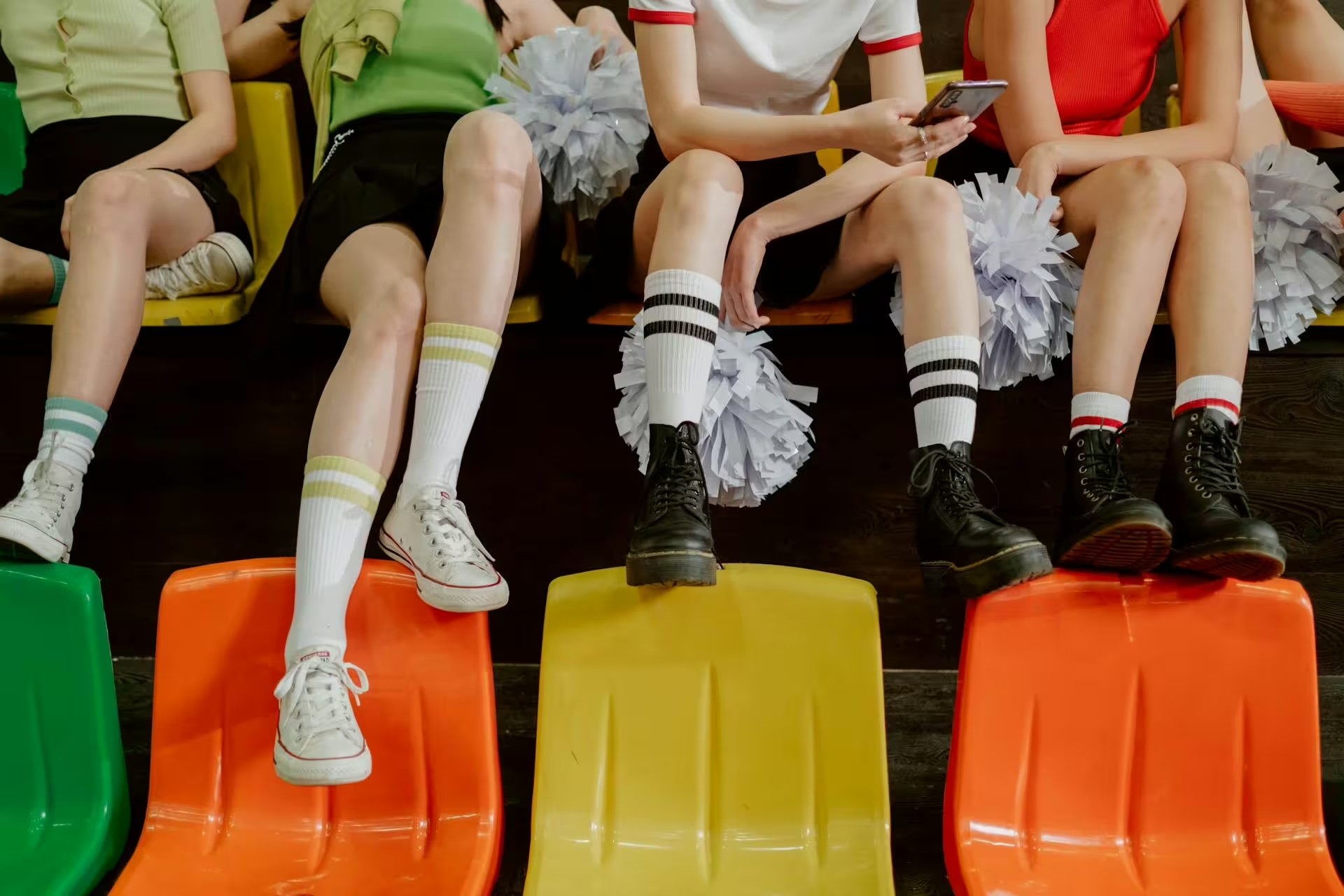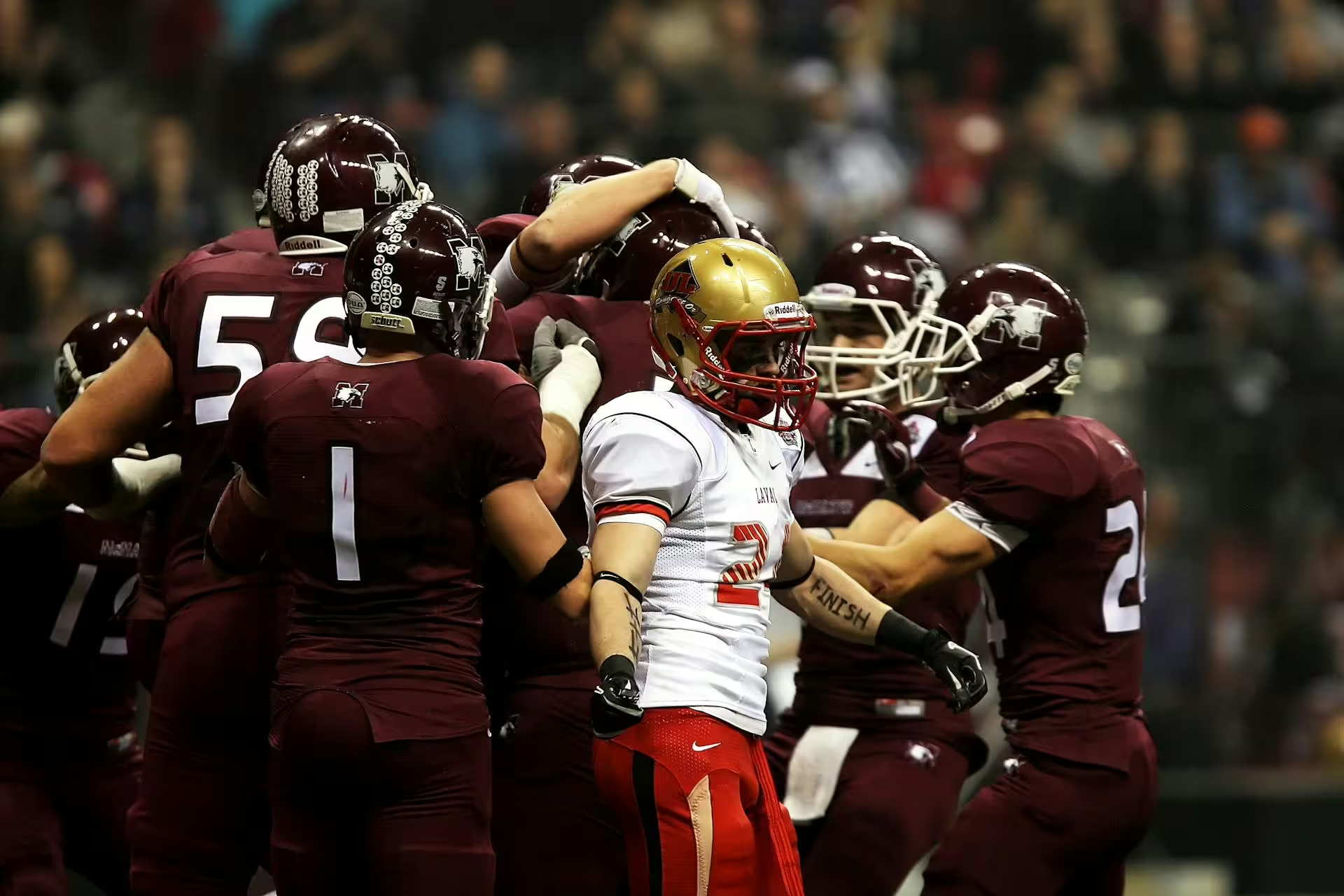High school is a complicated time for teens. We aren’t just talking about high school sports; though that is the main focus of today’s conversation. No, what we are referring to is the dynamic social hierarchy and interactions that underpin the entirety of a person’s modern high school experience. As you might expect, the inherent social aspects of high school sports also falls under this overarching them.
There are many topics within the high school social structure that one might discuss when talking about high school students, but the one that we aim to focus on today is a cornerstone of many high school sports teams; teamwork. Though most young athletes have learned about concept from the very start of their athletic careers, it is often in high school that teens learn to collaborate, lead, resolve conflict, and balance individuality with the collective goals of the unit. In many ways, high school sports is a training ground for the collaboration that will greet our kids when they entire the adult world.
As parents, we worry a lot about the social trials and tribulations our teens will face once they reach high school; and for good reason. After all, we were teens ourselves once and frankly, it sucks. The good news is that, as socially complicated as high school tends to be, high school sports can help to make things much more streamlined. For many kids and teens, there are no better friends than their teammates; learning to work with them, communicate better with them, and succeed with them to everyone’s benefit, can make all the difference in the world.
In this article, we will discuss high school sports and how teamwork can help to enhance a teen’s social skills, leadership skills, and overall happiness. At the same time, we will talk about why teamwork is so important to the people are kids are eventually going to turn out to be.
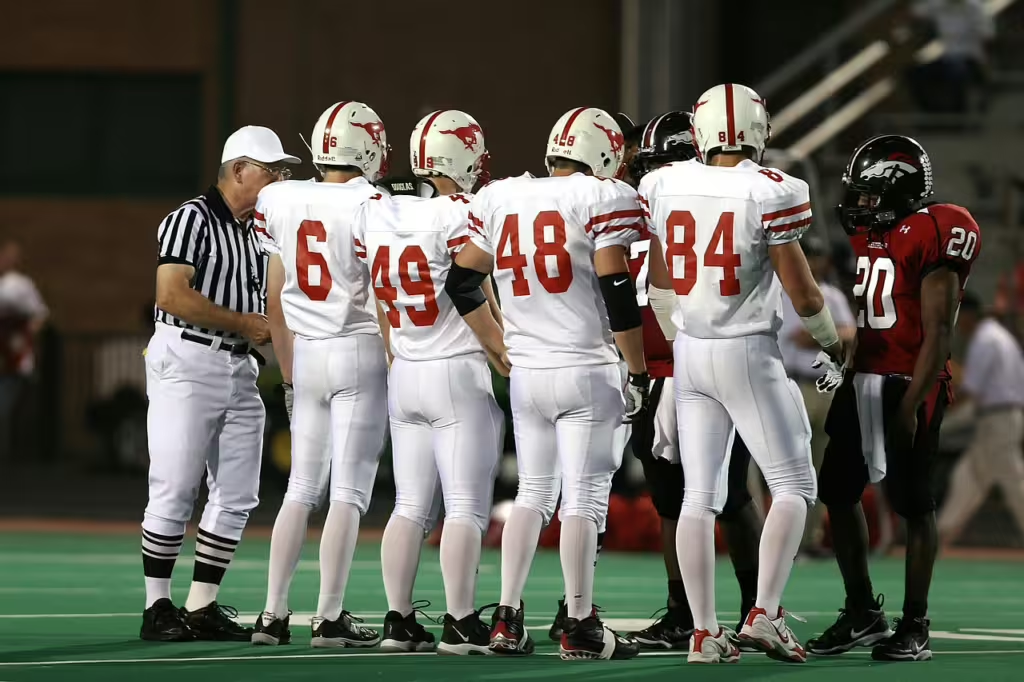
The Heartbeat of Humanity
Teamwork is the glue that allows eleven football players, five basketball players, or nine baseball teammates to move and act as one, cohesive unit. It helps whole teams of software technicians to build and launch a program, it helps battalions of soldiers hold off an attacking force, and it is the thing that made our species into the planet-wide powerhouse that we currently are. Without collaboration, human beings would have never been able to achieve any of the things that created our society. And it goes without saying, we wouldn’t have been able to create organized sports, either.
In youth sports, teamwork teaches kids and teens that success isn’t about one’s individual glory or achievements but about trust, sacrifice, and above all else, communication. The prevailing belief is that the kids who grasp teamwork the best also develop better emotional intelligence and physical skill. Kids who work well with teammates learn how to listen, support other people, and stay accountable for their own actions. If you don’t think those things will help them later in life, you’re fooling yourselves.
Why Teamwork Feels Different in High School
Elementary and middle school sports teams are more about fun and participation, but the culture shifts dramatically in high school. The rosters are smaller and more selective and the competition is stiffer. Tryouts are tougher and not everyone is going to make the cut. There are higher social stakes for kids wanting to “make the team” and for those that aren’t able to do so. Meanwhile, collegiate and career dreams also begin to come to the forefront of athletes’ attention. As if all that weren’t enough, there are hormonal changes taking place, along with alterations to the way teens see their high school “identity.” The unfortunate thing about these changes is that they can magnify any insecurities, social hierarchies, and peer pressure your child is already feeling.
How Teamwork Helps
Teens who are engaged in team sports learn the ways of success and failure. Teams celebrate wins together and they also grieve losses together. The latter is the more important of the two, as it helps teens to build emotional resilience, something that will serve them well in their adult lives. Leadership is also part of teamwork and in team sports, even at high school level, every players gets their chance to inspire in their own way. They can lead by example, encouragement, or accountability. Good sports team leaders make excellent employees, managers, and often find leadership roles in their community.
Through teamwork, teens learn how to be responsible, dependable, and prepared. They learn that missing practice or slacking off isn’t just their problem; it’s the whole team’s! The sense of responsibility that a child gleans from being on a sports team is often just as important in their relationships, academic pursuits, and future careers. Teams are also a great place for teens to learn different cultures and perspectives. Players communicate in different—sometimes less-than-effective—ways and learning how to navigate such miscommunications, disagreements, and alternative views is something they will absolutely need going forward.
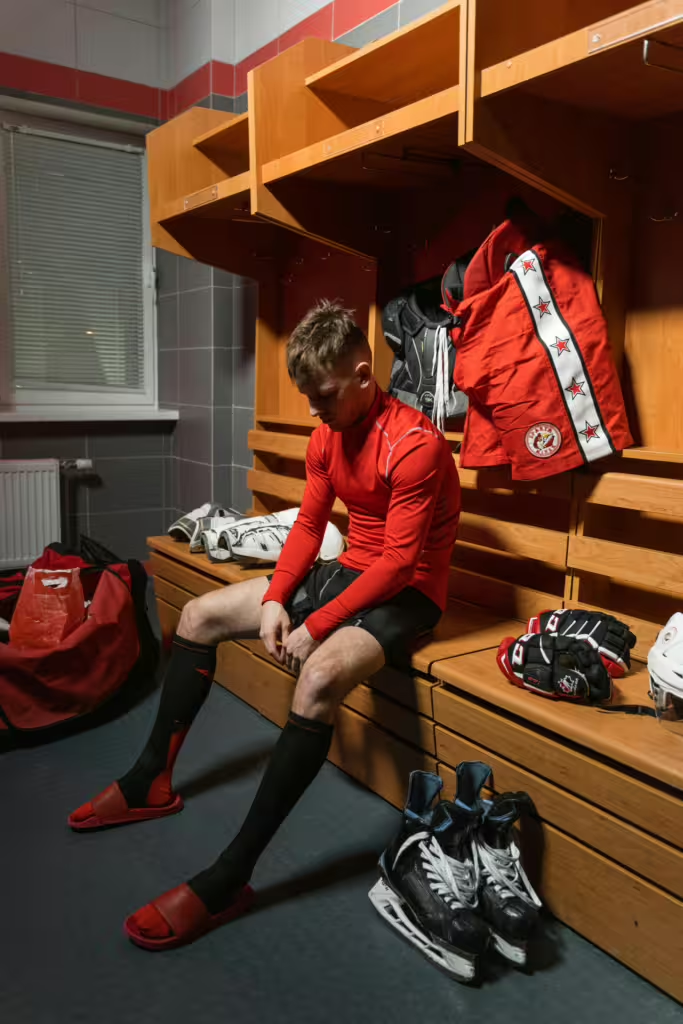
The Social Side of Team Sports
Teamwork, in its purest form, is an idealized organization of people into one harmonious, cohesive unit. In many ways, the sports team itself mirrors society. What we mean by that is, there are leaders and followers, quiet workers and outspoken voices, stars and supporting players; all working together to achieve success. Of course, reality is rarely as harmonious as one wants it to be.
Cliques and Hierarchies
Even on a team where everyone is essentially equal, subgroups and hierarchies can form; thus is the nature of high school. In these environments, seniors tend to dominate social circles and starters may unintentionally distance themselves from bench players, without meaning to. Divisions like these are a huge blow to a team’s or individual teen’s morale and there is no easy cure. The best thing a teen can do is to try and find friends on the team and stick to them, even if other members of the team are less gracious.
Team captains, being the de facto leaders of a team, hold powerful social sway within the hierarchy. They are meant to unite the team by leading for example and their behavior often sets the tone for what’s acceptable within that social structure. Coaches are important too, because they are the arbiters of what is fair within a team dynamic. Favoritism, bullying, and toxic attitudes are always going to crop up, but it’s important for teens to have proper perspective about why these attributes do not make for good leaders and non-cohesive teams.
Unfortunately conformity, the weight of expectation, and social media are all counterintuitive to good teamwork. The problem is; your teen is bound to encounter each and every one of these at some point in their high school sports career. This means that there is no avoiding them. What teens can do is try their best to not let these things define them. They need to learn that real teammates will respect them and their choices. True friends won’t haze, or bully, or judge them over the internet. And finally, they need not automatically conform to the status quo, especially if what people are doing is cruel, wrong, illegal, or just doesn’t gel with their own values.
When Sports Become a Social Lifeline
For many young athletes, sports, and really the team itself, represents so much more than just something to do after school. This isn’t just a pastime—it’s their social life. The emotional turbulence of one’s high school years is well-documented and difficult to navigate for even the most a socially adept. Fortunately, sports can double as a social booster. High school sports provides teens with structure, friendship, and a sense of belonging. Coaches, meanwhile, often double up as mentors, while teammates become a sort of extended family.
For many young people, sports are a way to build self esteem, reduce anxiety, and protect against depression and loneliness. Of course, these benefits are often overshadowed by stress and exclusion, which can happen when individuals or team members put themselves and their own self-esteem above that of their teammates. It’s a sticky wicket to be sure, and when things go awry, intervention from parents, coaches, and administrators may be needed to reign in bad behavior.
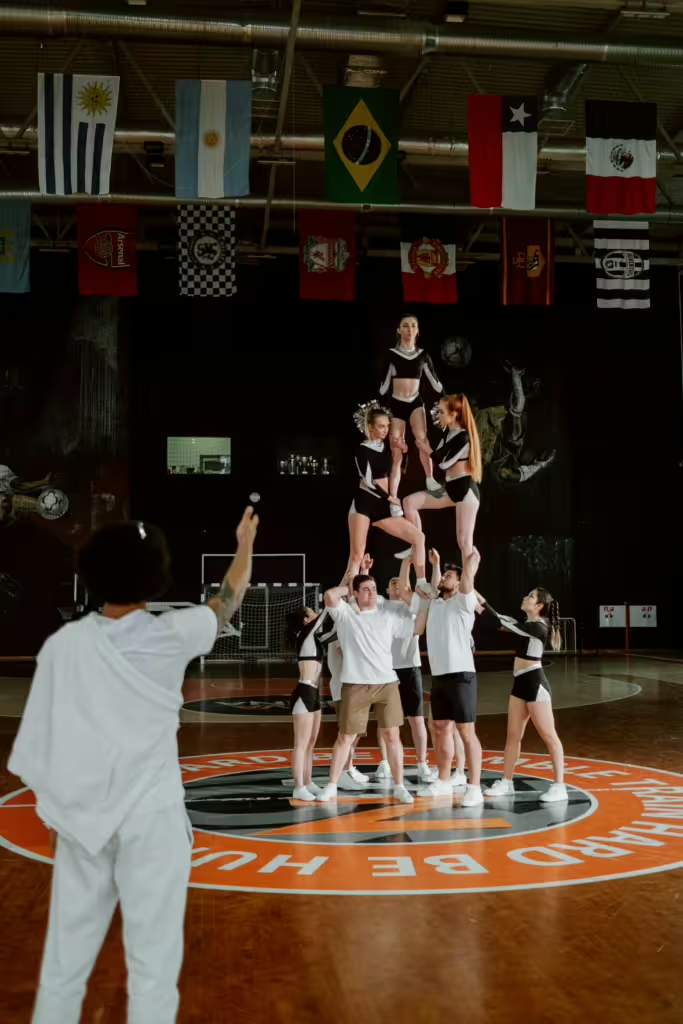
Cultured Athlete Says…
As you can see, teamwork might just be the beating heart of high school sports and that status makes it the perfect vehicle for helping a teen’s personal growth and socialization. Through the lessons of inclusion, communication, and hard work, teens can turn their athletic experiences into lifelong lessons in collaboration. Learning to work with others from a diverse array of backgrounds can help keep kids empathetic, tolerant, and humble. Team-building in high school is just practice for being a decent human being; and that is something any parent would be proud to call the person their child becomes. .
Discover more from CulturedAthlete
Subscribe to get the latest posts sent to your email.

